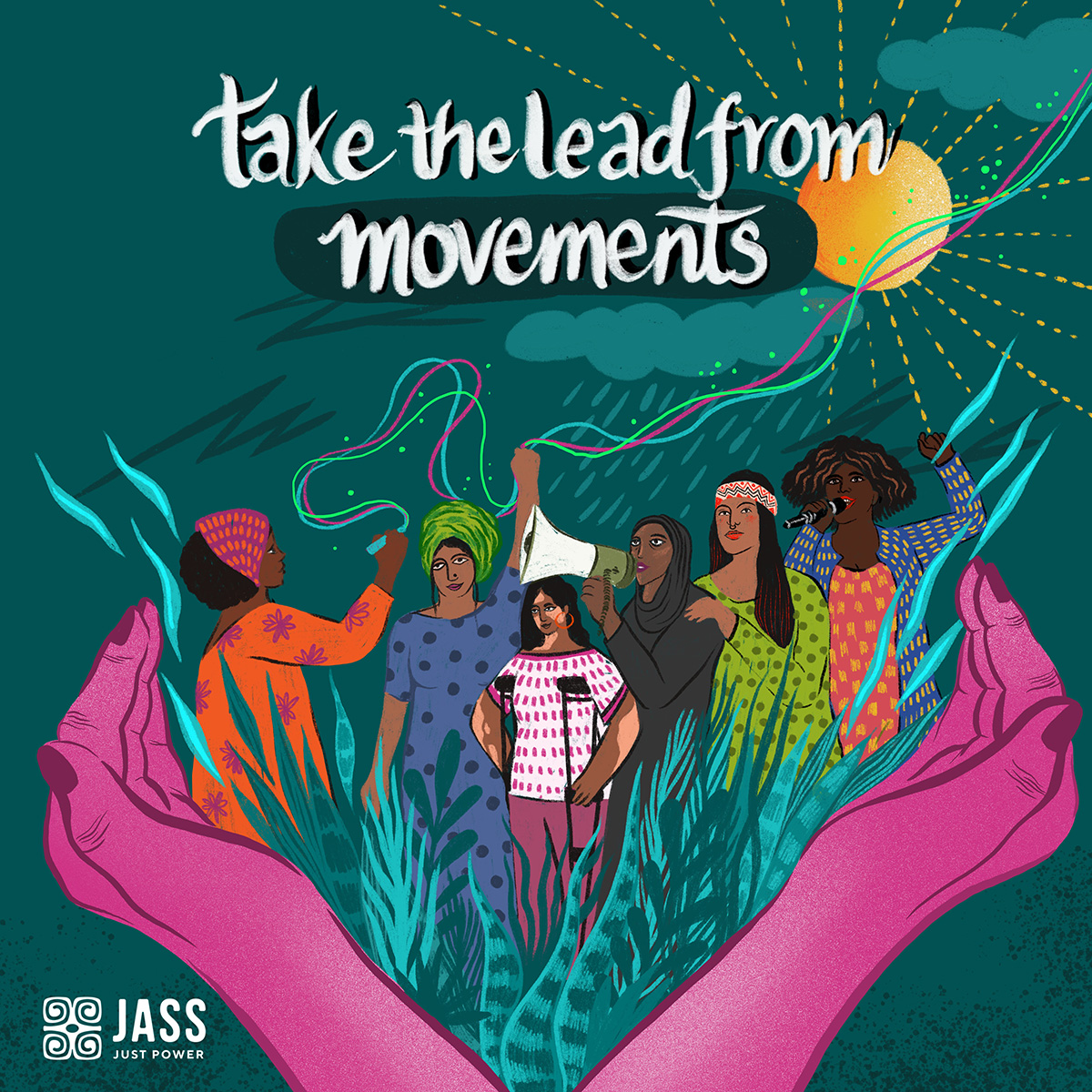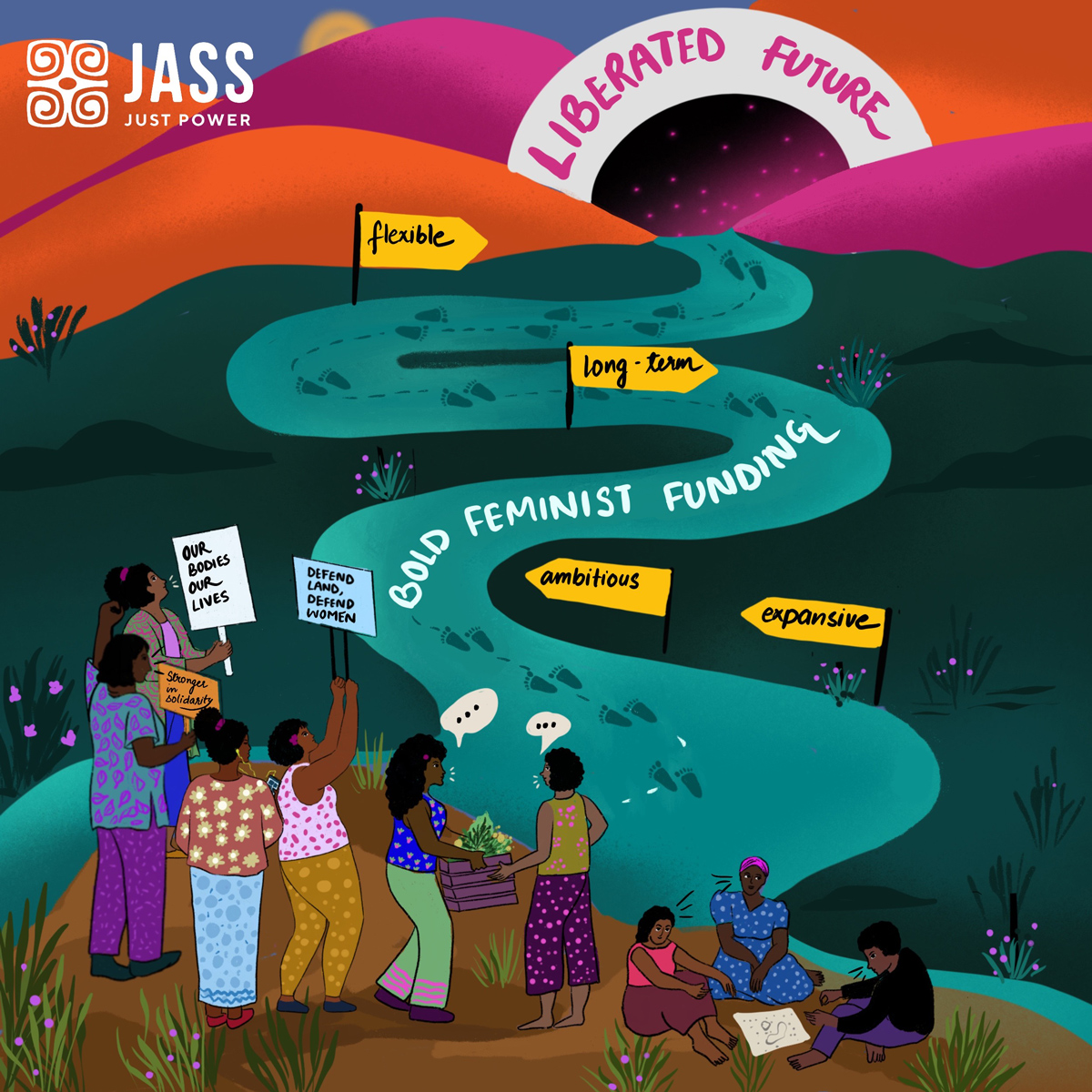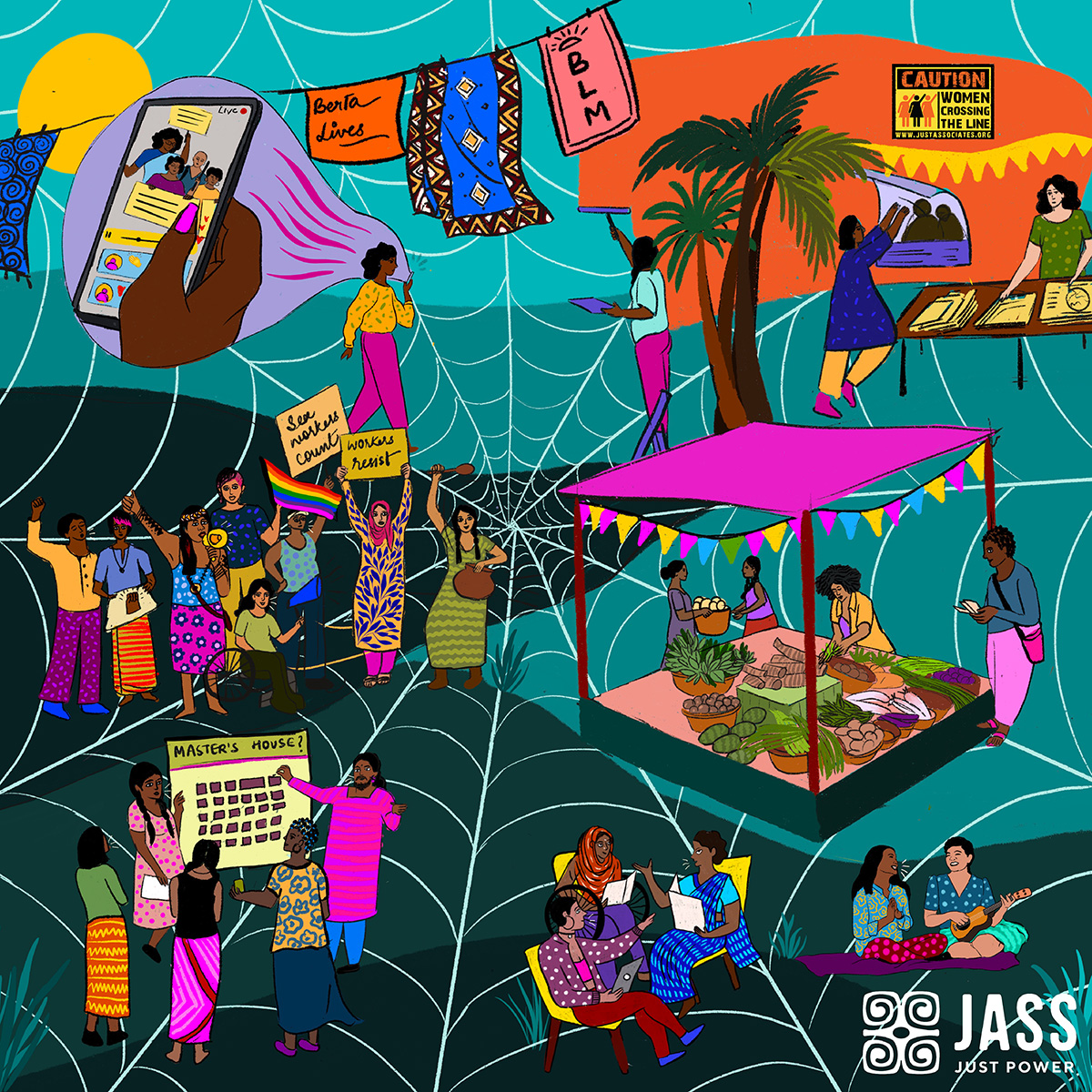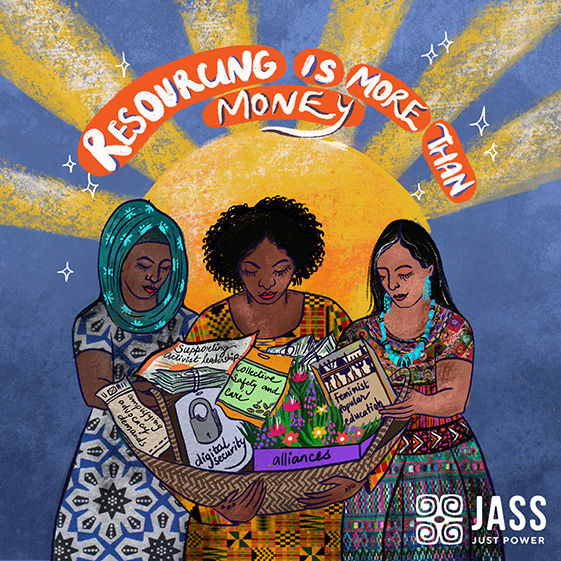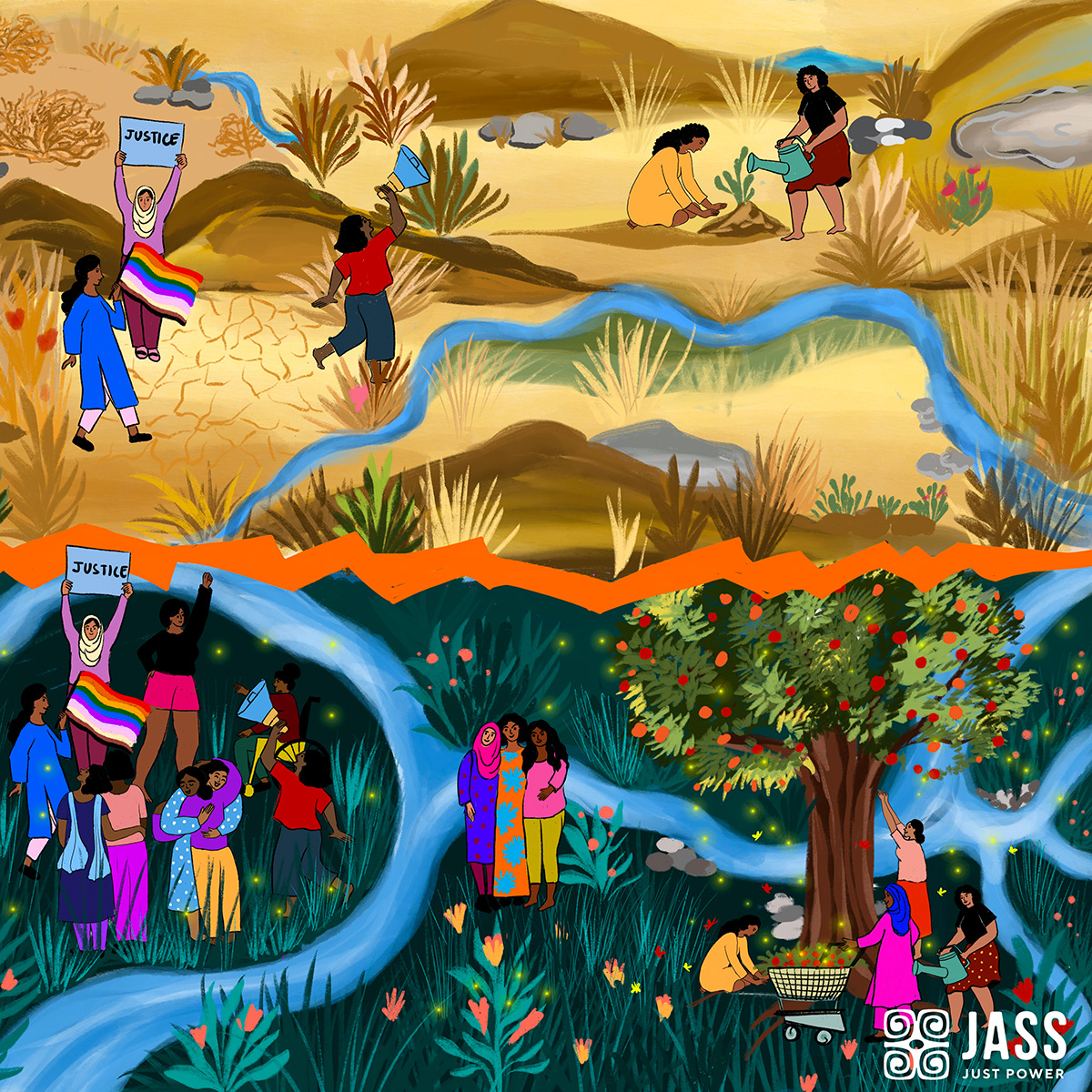Bold Movements + Bold Funding
= Bold Change
In these turbulent times, we are witnessing better-organized movements and mobilizations than we have seen in decades. But movements are also facing significant risks and challenges. How is philanthropy meeting this moment?
A provocative conversation
between feminist funders, thinkers, and disruptors
INTRO
At the 2021 EDGE Funders Alliance Annual Conference, JASS invited seven women of color, primarily Black women leaders within philanthropy, to join a candid conversation on what the political moment is asking of funders. Boldly, they posed some fundamental questions that went to the heart of the matter:
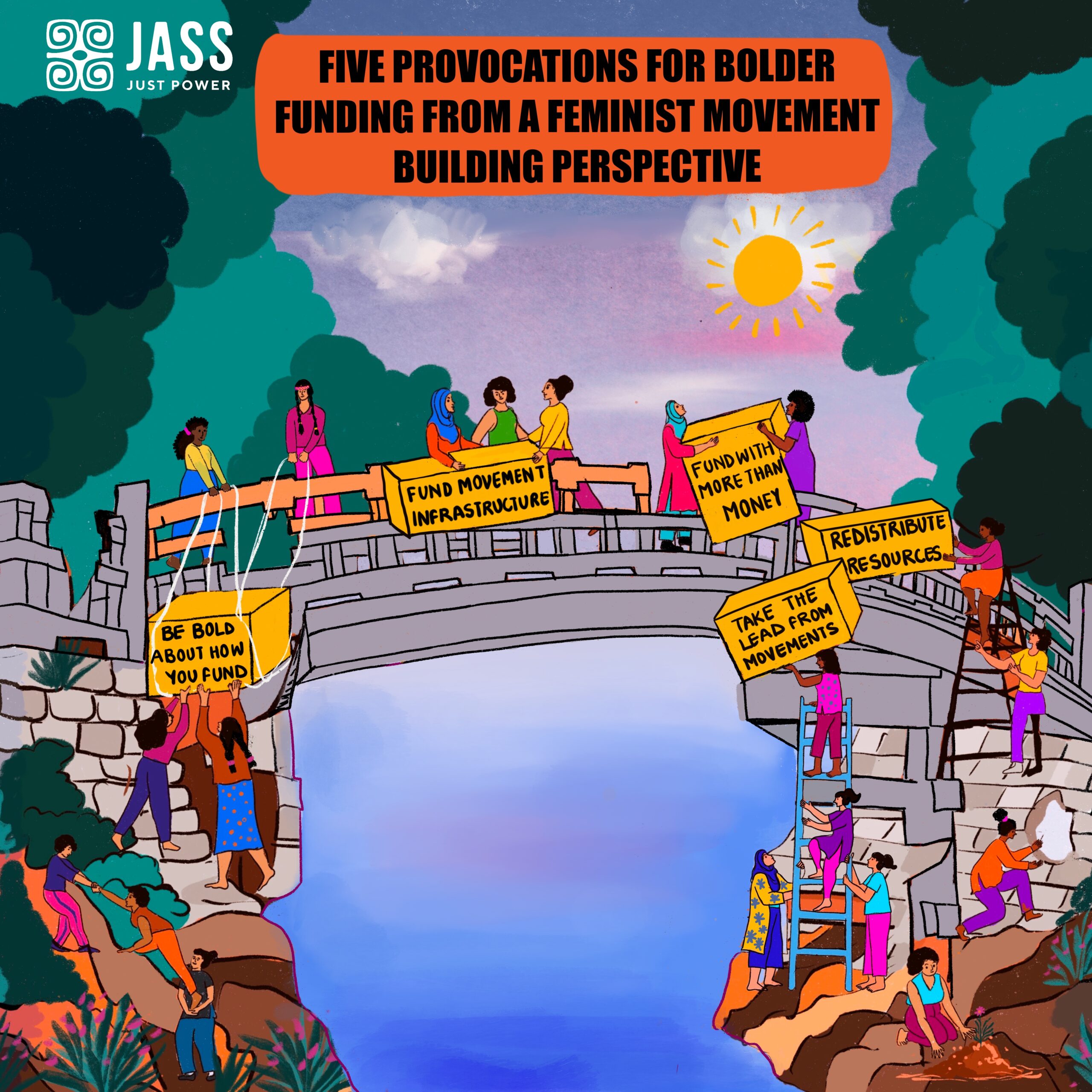
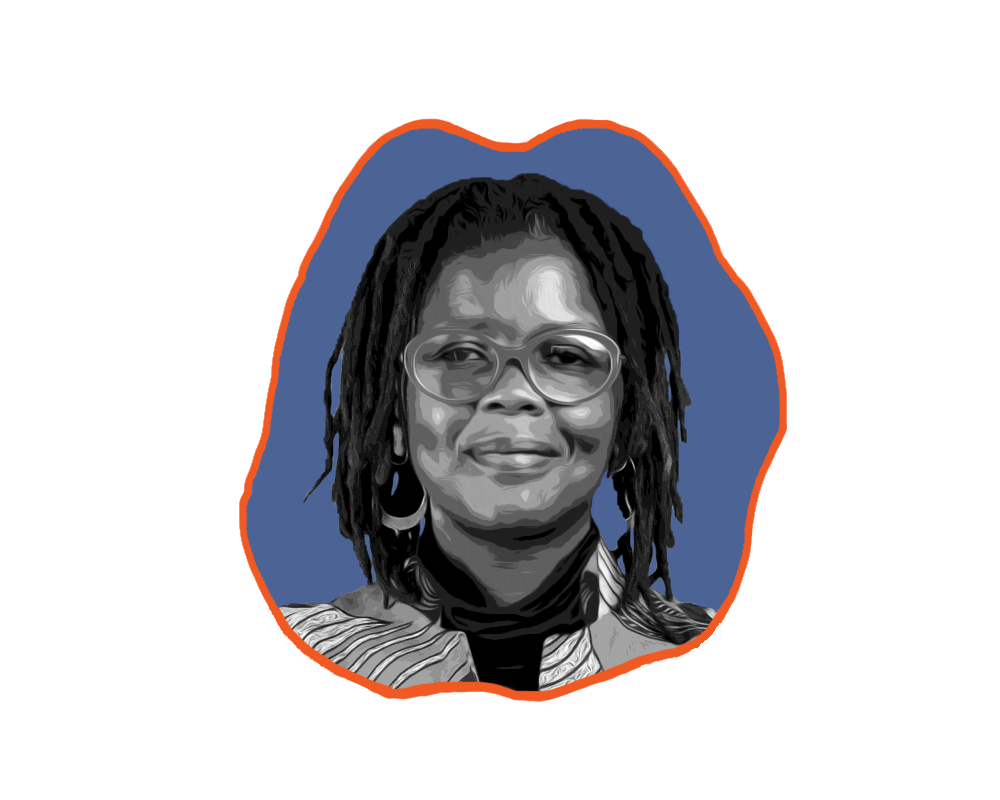
What’s holding us back from funding better, faster, and more impactfully to make a big difference?
Awino Okech (Moderator), SOAS, University of London
The result was a critical inter-generational and cross-sectoral conversation that surfaced vital insights about the role of philanthropy in terms of movement needs, and the stretch of imagination needed about how to resource transformational work.
Now is the time to listen to movements because as one participant aptly said, “we don’t got time!” Below are some provocations on resourcing that push us to rethink how we can strategically align funding with movement priorities so that those movements have what they need to thrive and win.
Listening to and trusting the leadership of movements
because those close to the problem are closest to the solution. Movements know what they need and must determine where resources go.

It took a whole pandemic for donors to become flexible when movements have been talking about this need for decades. We need to go beyond by asking how we are stepping up.
Sandra Macías del Villar, Global Fund for Women
Taking bigger risks
Philanthropy has the power to rewrite the playbook, funding in new and bold ways, prioritizing innovative work and unconventional approaches such as funding individuals, unregistered formations, emergent work, marginalized groups out front (e.g., trans and non-gender conforming people, Indigenous communities)
We should be funding what is considered risky, sometimes that means transferring funds to an individual. It means not asking for mountains of documentation to prove you exist. We must also challenge the risk of only funding one issue and support issues in a collective and intersectional way.
Amina Doherty, Black Feminist Fund/Equality Fund

Be ambitious, imaginative, and expansive about what and how long you fund.
Fund experimentally and creatively.
Give long-term flexible (unrestricted) funding that is not issue or activity-based but that supports holistic visions of change with long term impacts.

What would it look like if we had an imagination not to fund for five but 50 years?
Aleyamma Matthew, Collective Future Fund
Movement building is complex,
it requires multiple and different leaders, skills, capacity, points of interventions, as well as political alignment and collaboration to withstand backlash and maximize impact and longevity.

If you want effective rapid response during times of crisis, then fund properly outside of crisis because it is the people who live in these communities who understand the context and are able to move most rapidly and more quickly.
Theo Sowa, Independent Consultant
Social change has many dimensions
and entails many entry points for resourcing holistically. Support movements with a range of resources such as digital security, collective and individual care, healing justice, and other intangibles that sustain their organizing for the long haul.

Resourcing is not only about money. As JASS, a movement support organization we like to think that we come with a basket of resources to meet movements where they are at – these include feminist popular education, physical security, leveraging alliances critical to movement agendas, and access to global advocacy spaces – which movements can draw on.
Shereen Essof, JASS
Think of philanthropy as a redistribution of resources to communities to which it belongs.
Question philanthropic practices
that replicate structural inequalities and power imbalances that perpetuate resource barriers that stifle the ability of movements to make change happen.

We have to completely rethink all the things we have been doing because they are not working. We need to start thinking of philanthropy as a redistribution of resources to communities to which it belongs to. It means committing to generational resourcing of movements and decades-long worth of grants
Jesenia Santana, Solidaire Network

